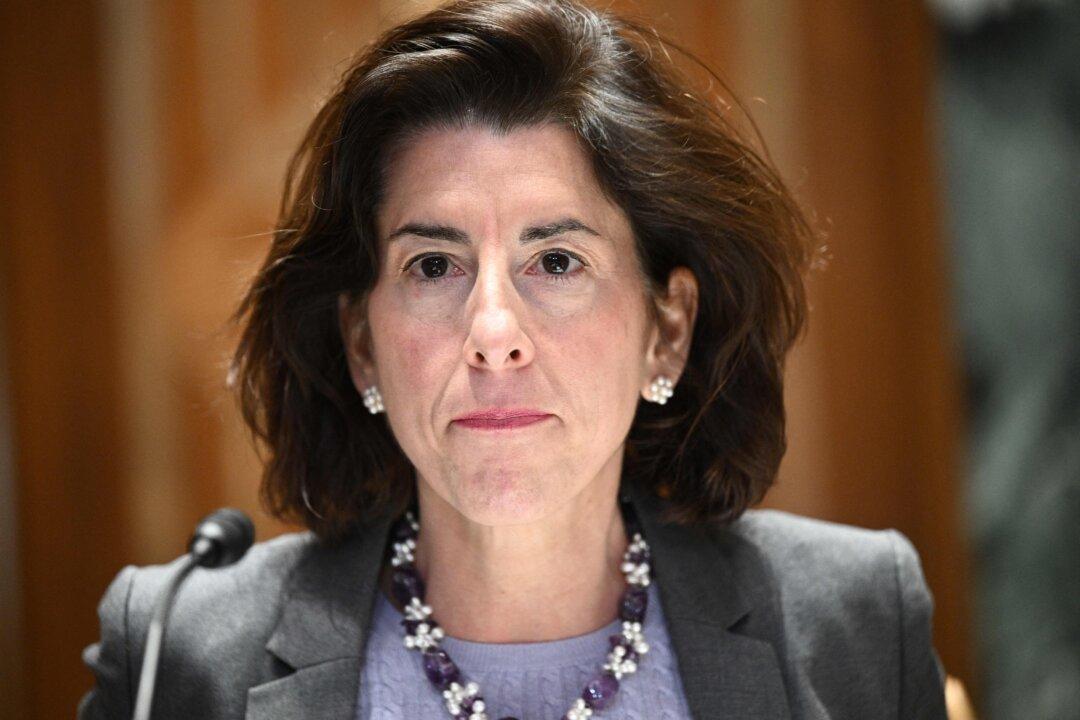Commerce Secretary Gina Raimondo on Sunday said she understands that Americans feel frustrated with rising prices at fuel pumps and grocery stores, but insisted that the U.S. economy is fundamentally “very strong” and can avoid a recession.
Speaking on ABC’s “This Week,” Raimondo said it’s normal for the Federal Reserve to hike interest rates to return the economic growth, which is recovering from the depths of the pandemic, to a “more steady” level.





